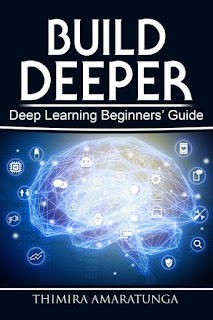While Python would still be the primary API - and would be the most complete API for TensorFlow - version r1.0 will introduce a new, experimental Java API. While it could be far from complete, and may take a few releases to stabilize, having the Java API may open TensorFlow to new possibilities. Also note that in the current release candidates of r1.0, you will need to compile TensorFlow from source in order to get the Java interface (instructions from TensorFlow GitHub page), and it's still only available for Linux and Mac OS.
The next exciting feature from r1.0 is the new linear algebra compiler - known as XLA (Accelerated Linear Algebra) - which will be used to optimize TensorFlow computations. This domain-specific compiler will improve the speed, memory usage, and the portability of TensorFlow across many server and mobile platforms. This means we will get to see TensorFlow supporting new hardware platforms, and - most importantly - there will be better support for mobile devices. TensorFlow already has limited support for Android, iOS, and Raspberry Pi (some Demos available at official site), but with XLA, there might soon be native mobile applications running on average smartphones performing intensive machine learning calculations. Read more about XLA here.
There's no official release date announced for the release of r1.0 yet. But there has been one alpha release and three release candidates released within the last month, with TensorFlow 1.0.0-rc2 being the latest at the time of this writing. So, we can hope that we will get to see r1.0 pretty soon.
Related links:
- http://www.infoworld.com/article/3162413/artificial-intelligence/tensorflow-10-unlocks-machine-learning-on-smartphones.html
- https://github.com/tensorflow/tensorflow/releases
- https://github.com/tensorflow/tensorflow/tree/master/tensorflow/java
- https://www.tensorflow.org/versions/master/experimental/xla/
- https://www.tensorflow.org/mobile/
Build Deeper: Deep Learning Beginners' Guide is the ultimate guide for anyone taking their first step into Deep Learning.
Get your copy now!



No comments:
Post a Comment